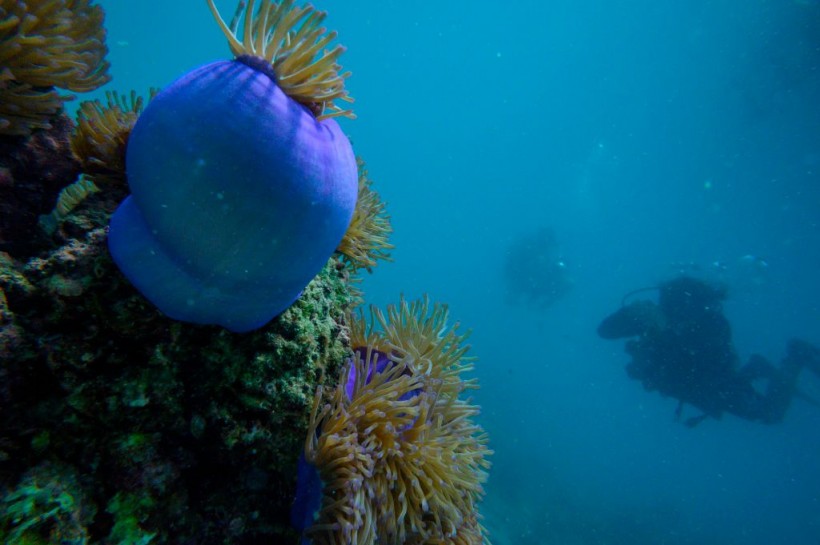
(Photo : ROMEO GACAD/AFP via Getty Images)
Sea anemones need no brain says shocking study that revealed the oddball side of these animals.
- A new study says that anemones are not like animals with a brain.
- These animals don't need a brain to learn to react to the environment despite having no brain.
- Such simple animals are surprisingly complex despite seeming so uncomplicated.
Scientists examined sea anemones that learn in a simple way mentioned in a shocking study that investigated the hypothesis. Learning will need a brain that contrasts with processed with even a simple one.
Sea Anemones Learns
One form of learning is the non-associative type that comes from getting exposed to the same stimulation that even a simple organism is capable of, reported Science Alert.
Subjects of the study are starlet sea anemones (Nematostella vectensis) capable of complex learning due to recognizing light and electric pulses in this research.
Simon Sprecher, a University of Fribourg neurobiologist, was part of the research that concluded that it is a kind of associative learning, noted UNIFR. He added that brains are sometimes unnecessary, just the nervous system to learn behavior.
Compared to brainer animals capable of connecting an outside influence to have a react then change how they react. One example is getting burned over a hot stove painfully will lead to preventing it from happening again.
Having a recall of what has harmed anyone came about with the development of the nervous system. It would control the synaptic reactions with the flexibility of the brain.
Brains are not seen on all animals, and some don't like Cnidarians or anemones, jellyfish has a nerve network. It can be assumed they learn non-associatively.
Do Organisms Need a Brain To Learn?
How these Cnidarians can do associative learning was investigated by the author and the group from Fribourg and Barcelona University, cited Animal Diversity Web. They used electric shock and light for the experiment.
The procedure of classical conditioning is a neural event linked to significant stimuli that can end in reward or torture. Study authors cited earlier research from 40 years ago has evidence lacking in classical conditioning of Anemones, but was never repeated, mentioned PsycNet.
The study authors combined a random group of 10 to 18 starlet sea anemones in paired tests to see what kind of light or electric pulses were the same response. Seen in tests not done in pairs that strobing light and electricity were not synchronized.
Using micro shock on the simple animals' tentacles done simultaneously or not coordinated. They only noticed the reactions to light, and others were given shock and light as stimulation. Those who got light only reacted to that.
For the ones that got shocked by electricity with light, about 72 percent pulled back their tentacles, sensing the light. It is two times that of 30 percent of the animals that got electricity and light at various times.
Special software would measure how long the Cnidarian is during the test with how long they were contracted. Another is how long they are retracted in the trials; if shock and light were used, then retraction was longer than the other group.
Study authors said that they reacted to whatever stimuli they got. In a new study, sea anemones and their learning process with no need for a brain show little how a simple nervous system is unknown, mentioned in PNAS.
Related Article: Researchers Discovered the First Animals To Develop Primitive Skeleton About 540 Million Years Ago








